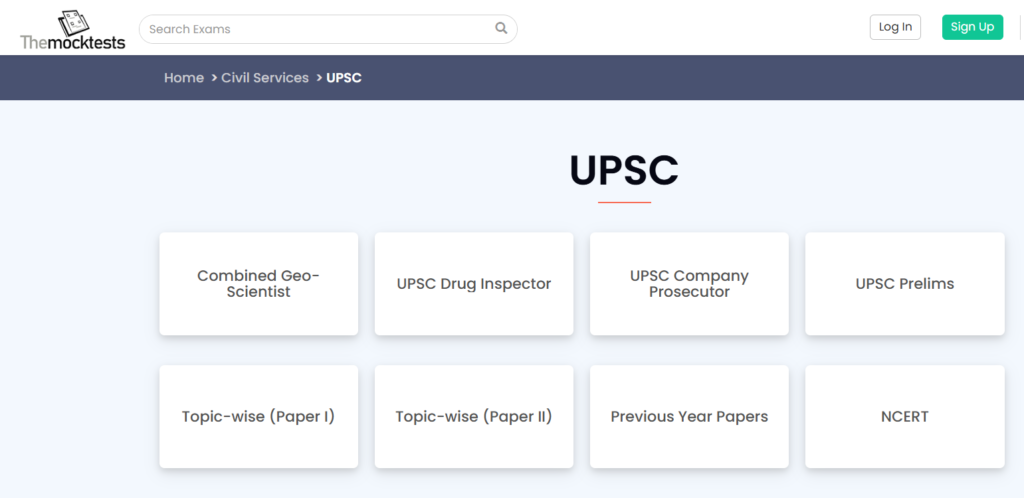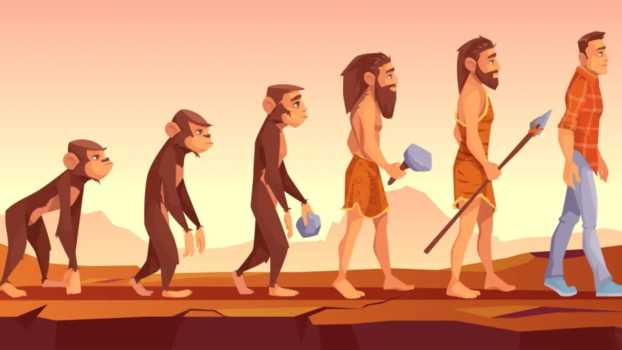The UPSC Civil Services Examination is one of the most challenging and prestigious exams in India. Anthropology is an optional subject that can significantly boost your chances of success. This guide will break down the UPSC syllabus for Anthropology in a clear and concise manner, helping you understand the scope of the subject and plan your preparation effectively.
1. Paper I: Physical Anthropology and Archaeology
- Paleolithic, Mesolithic, Neolithic, and Megalithic Cultures: This section delves into the evolution of human culture from the earliest stone ages to the development of large stone structures.
- Key Concepts:
- Archaeological techniques like excavation, dating methods (carbon dating, potassium-argon dating)
- Understanding the evolution of tools, technology, and social organization across different periods.
- Significance of key archaeological sites in India and the world.
- Key Concepts:
- Prehistory and Protohistory of India: This section focuses on the period before written records, exploring the development of early civilizations in India.
- Key Concepts:
- Indus Valley Civilization: its urban planning, social structure, and decline.
- Vedic and post-Vedic periods: social and religious changes, rise of early kingdoms.
- Understanding the transition from hunting-gathering to agriculture and the rise of settled communities.
- Key Concepts:
- Racial and Ethnic Classification: This section explores the concept of race and ethnicity, their biological and socio-cultural dimensions.
- Key Concepts:
- Critiques of racial classifications, understanding race as a social construct.
- Ethnic groups in India: their distribution, cultural practices, and social identities.
- Concepts like caste, tribe, and their significance in Indian society.
- Key Concepts:
- Human Genetics: This section delves into the study of human heredity, including genetic variation and its implications.
- Key Concepts:
- Mendelian genetics, DNA structure and function, genetic mutations.
- Human Genome Project and its significance.
- Applications of genetics in anthropology, such as understanding human evolution and disease susceptibility.
- Key Concepts:
- Human Growth and Development: This section explores the physical and mental development of humans from conception to adulthood.
- Key Concepts:
- Stages of human growth and development, including prenatal, infancy, childhood, adolescence, and adulthood.
- Factors influencing human growth and development, such as nutrition, environment, and socio-economic factors.
- Key Concepts:
- Physiological Anthropology: This section examines the physiological adaptations of humans to different environments.
- Key Concepts:
- Human adaptability to extreme environments (e.g., high altitude, hot climates).
- Physiological responses to stress and disease.
- Human nutrition and its impact on health and well-being.
- Key Concepts:
2. Paper II: Social Cultural Anthropology
- Concept, Scope, and Development of Anthropology: This section provides a foundational understanding of anthropology as a discipline.
- Key Concepts:
- Branches of anthropology (physical, cultural, linguistic, archaeology).
- Major theoretical perspectives in anthropology (e.g., functionalism, structuralism, Marxism).
- Contributions of key anthropologists (e.g., Malinowski, Radcliffe-Brown, Levi-Strauss).
- Key Concepts:
- Comparative Method in Anthropology: This section explores the methods used by anthropologists to compare and analyze different cultures.
- Key Concepts:
- Ethnographic fieldwork, participant observation, interviews.
- Cross-cultural comparisons, cultural relativism, ethnocentrism.
- Analyzing cultural data using qualitative and quantitative methods.
- Key Concepts:
- Culture, Civilization, and Society: This section explores the concepts of culture, civilization, and society, and their interrelationships.
- Key Concepts:
- Defining culture: its characteristics, functions, and transmission.
- Relationship between culture and society, culture and personality.
- Concepts of civilization and its evolution.
- Key Concepts:
- Social Organization: This section examines the structure and functioning of human societies.
- Key Concepts:
- Social groups: family, kinship, marriage, caste, class.
- Social stratification, inequality, and power relations.
- Social institutions: religion, politics, economy.
- Key Concepts:
- Economic Anthropology: This section explores the economic systems of different societies.
- Key Concepts:
- Subsistence strategies: hunting-gathering, pastoralism, agriculture.
- Exchange systems: reciprocity, redistribution, market exchange.
- Economic development and its impact on traditional societies.
- Key Concepts:
- Political Anthropology: This section examines the political systems of different societies.
- Key Concepts:
- Power, authority, and legitimacy.
- Political leadership: chiefdoms, kingdoms, states.
- Conflict and resolution, war and peace.
- Key Concepts:
- Religion and Magic: This section explores the role of religion and magic in human societies.
- Key Concepts:
- Beliefs in the supernatural, rituals, myths, and symbols.
- Types of religious systems: animism, totemism, monotheism.
- Religion and social control, religion and change.
- Key Concepts:
- Anthropology of Religion: This section delves deeper into the study of religion from an anthropological perspective.
- Key Concepts:
- Sacred and profane, religious symbols and their interpretation.
- Religious experience, religious movements, and religious pluralism.
- Key Concepts:
- Anthropology of India: This section focuses on the anthropological study of Indian society.
- Key Concepts:
- Indian culture and civilization: its diversity and unity.
- Caste system: its origins, structure, and contemporary relevance.
- Tribal societies in India: their culture, economy, and social organization.
- Key Concepts:
Tips for Preparing for the UPSC Anthropology Syllabus
- Understand the Concepts: The UPSC Anthropology syllabus requires a deep understanding of key concepts and theories. Don’t just memorize facts; try to grasp the underlying logic and implications.
- Read Standard Textbooks: Refer to standard textbooks and academic journals to gain a comprehensive understanding of the subject.
- Recommended Textbooks:
- Physical Anthropology: P. Nath, I.J. Singh
- Social Cultural Anthropology: M.N. Srinivas, Louis Dumont, David Schneider, Clifford Geertz
- Indian Anthropology: M.N. Srinivas, A.M. Shah, I.P. Desai
- Recommended Textbooks:
- Practice Previous Year Question Papers: Analyzing previous year question papers is crucial to understand the exam pattern, identify important areas, and practice answer writing.
- Develop Answer Writing Skills: Practice writing answers within the word limit, focusing on clarity, structure, and presentation.
- Stay Updated: Keep yourself updated with current developments in the field of anthropology through academic journals, newspapers, and online resources.
- Join a Test Series: Enrolling in a test series can help you assess your preparation, identify your strengths and weaknesses, and improve your time management skills.

SIGNUP FREE FOR UPSC MOCK TEST
Key Resources for UPSC Anthropology Preparation:
- Online Resources:
- Insights on India: Provides daily current affairs analysis, answer writing practice, and online courses.
- IASbaba: Offers study material, mock tests, and mentorship programs.
- Unacademy: Provides online courses, live classes, and study materials from various educators.
- Libraries: Utilize university libraries and government libraries to access a wide range of books and journals.

Importance of Anthropology as an Optional Subject for UPSC
- Overlapping with General Studies: Many concepts in Anthropology overlap with topics covered in the General Studies papers, such as Indian culture, society, and history.
- Analytical and Critical Thinking: Studying Anthropology enhances your analytical and critical thinking skills, which are essential for comprehending and analyzing complex issues.
- Understanding Human Behavior: Anthropology provides valuable insights into human behavior, social interactions, and cultural diversity, which are crucial for understanding contemporary social and political issues.
- Unique Perspective: Anthropology offers a unique perspective on various social and cultural phenomena, allowing you to approach issues with a deeper understanding.
Conclusion
The UPSC Syllabus for Anthropology covers a wide range of topics, from physical anthropology and archaeology to social and cultural anthropology. By diligently studying the syllabus, practicing answer writing, and staying updated with current developments, you can effectively prepare for this challenging but rewarding subject. Remember to approach your preparation with a holistic perspective, focusing on understanding the underlying concepts and their real-world applications.
Disclaimer: This article is intended for informational purposes only and should not be considered as professional advice.
Discover more from ExamQuestIndia: The Best Exam Prep Platform in India
Subscribe to get the latest posts sent to your email.








